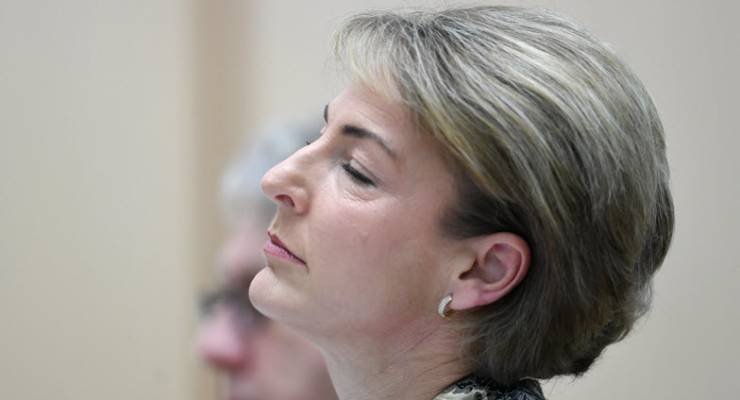
In my first year at university, a senior resident at my university college published his honours thesis, Quis custodiet ipsos custodes? Translated, “who will guard the guards (themselves)?”. He was pretty impressed with himself.
Ironically, given the events of the past week, that senior resident’s first job out of university was as a political adviser — which, according to a recent article in The Mandarin, is more like being a scapegoat politicians can blame for controversial events.
The recent resignation of David De Garis from Employment Minister Michaelia Cash’s office has reignited the debate around the role of political staffers in Australia’s political system. Often, it is those who have never been a political staffer that provide the loudest call for regulation — because, as we know, regulation is the solution to every problem.
When I left politics after five years of fun in the Rudd-Gillard-Rudd days, I joined the political afterlife. However, unlike a lot of my colleagues, at that stage in my life I had a particular aspiration to enter sports administration.
In my humble opinion, sports administration and the career of a political adviser are not too dissimilar. Firstly, you can’t control what happens on the field and you only have a limited amount of influence in whether your team or government wins or loses. When you are winning, there is a buzz around the place — and the opposite when times are tough. But the closest similarity — the public factor. If you stuff up in politics, you may create a front-page story, similarly in sport; a bad move by a sports administrator (particularly in Melbourne) can feed the beast for days.
I told my theory to a few senior sports administrators — they did not agree. But then again, who would want to be compared to a political adviser? If you believe what you read they are 23-year-old apparatchiks living their West Wing fantasy whose sole purpose for existence is to protect their minister’s reputation and position in cabinet.
Let’s break down a few fallacies:
1. They are partisan hacks
There is no rule that you have to be a member of political party to work in a political office. More often than not, offices are made up of a mixture of staff who are portfolio specialists (often from the department on secondment), one or two party people to help the minister with the political side, media people (often ex-journos) and administration staff.
Ministerial staffers do not walk into the office touting the party line. Behind closed doors they are looking after their portfolio agenda, meeting with stakeholders, working with the department and probably doing 1000 really average tasks that aren’t sexy at all.
2. They are all living a West Wing fantasy
I wanted to be Josh. There, I said it.
But the West Wing didn’t inspire me to go into politics, working for the parliamentary secretary for disability affairs did. My godmother has a disability, and it felt great working as part of team that was trying to do something bigger.
As shocking as they may sound, people need to stop being so cynical. You don’t work your butt off, face public scrutiny and spend countless hours away from your family and loved ones because you want to live out a West Wing fantasy — in fact, the closest similarity I found was the bad suits.
3. They aren’t accountable
During the week, an adviser made a mistake, told his boss and then resigned. He was held accountable. We live in such a hyper-political time that that explanation isn’t enough anymore and this is the bigger problem. Is every mistake made a fireable offence? If a minister isn’t across 100% of their department and their staff, and something goes wrong, should they resign? Remember, for De Garis the situation was the same, if he didn’t resign and his minister resigned, David loses his job. Either way, he is held accountable.
So, who is responsible for advisers? Employed under the MPS Act, they are, in the end, responsible to their ministers and they serve at their pleasure.
It is a highly risky job, your future is intrinsically aligned to somebody else’s. Would a new set of regulations have changed the result of the Michaelia Cash issue? It wouldn’t. All it would do is create another barrier to entry for ministers looking to recruit the best staff. Political staffers aren’t the problem in Canberra, the state of modern politics is.
*Sean Sammon is the CEO of Bastion S&GO, a government strategy and community engagement consulting firm.
*This article was originally published at Crikey sister site The Mandarin.







Crikey is committed to hosting lively discussions. Help us keep the conversation useful, interesting and welcoming. We aim to publish comments quickly in the interest of promoting robust conversation, but we’re a small team and we deploy filters to protect against legal risk. Occasionally your comment may be held up while we review, but we’re working as fast as we can to keep the conversation rolling.
The Crikey comment section is members-only content. Please subscribe to leave a comment.
The Crikey comment section is members-only content. Please login to leave a comment.